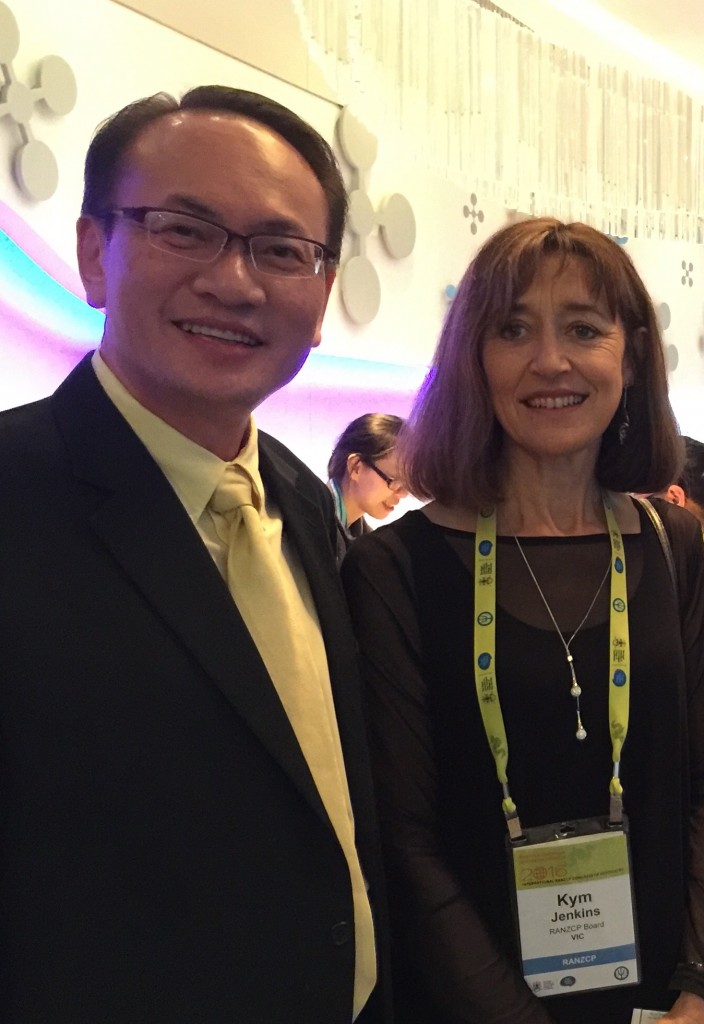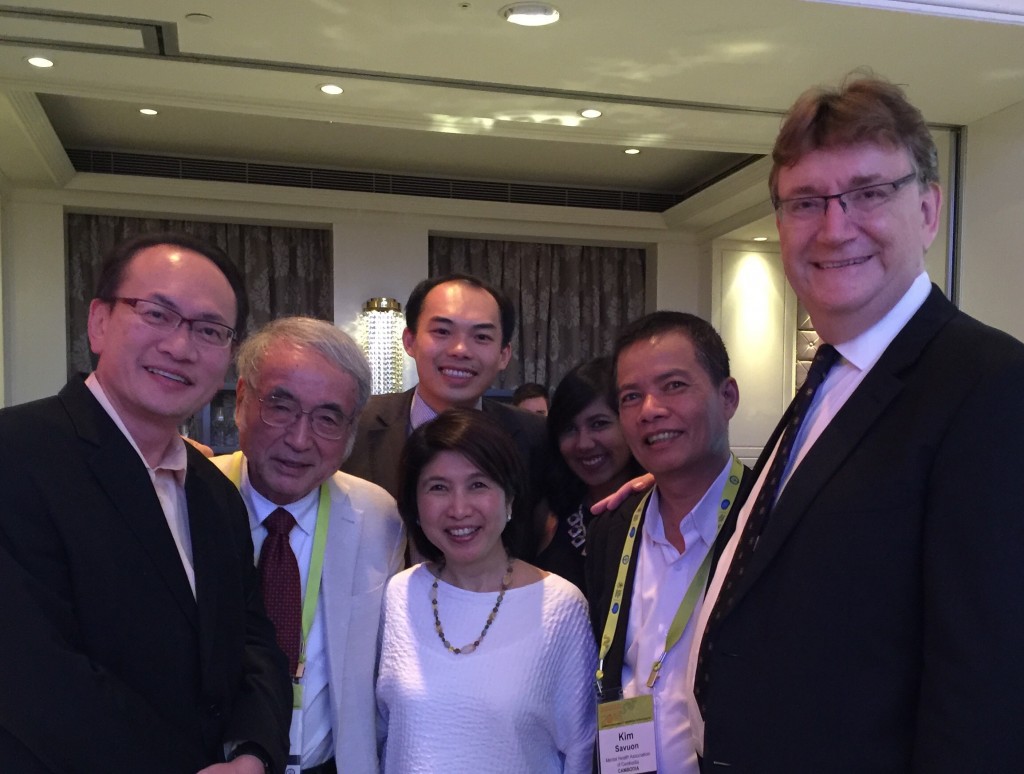It was more than a quarter of century that the Royal Australian & New Zealand College of Psychiatrists (RANZCP) last held a Congress outside Australia or New Zealand. This year the Congress was held in Hong Kong from 8 to 12 May to support the growing relationships and collaborations within the region. I was indeed delighted and honored to represent Singapore Psychiatric Association (SPA) for the Congress. The theme of the Congress is ‘Regional challenges worldwide influence’ and there were seven high calibre international keynote speakers along with many invited speakers from around the world who presented a diverse range of psychiatric topics.
I particularly enjoyed the keynote speech by Prof Naomi Fineberg of the Hertfordshire Partnership University NHS Foundation Trust. The lecture was on the relationship between compulsivity and impulsivity in Obsessive Compulsive Related Disorders (OCRDs), the evidence based treatment currently available and highlighted some of the randomized controlled trials showing efficacy against placebo in Resistant OCD.
As my current interest is on Peer Specialist programme and movement, I also attended the symposium on ‘Recovery and the Psychiatrist: The Way Forward’. Central to all descriptions of recovery are: Hope, Self-determination, Self-management, Empowerment and Advocacy. Psychiatrists have a key role to play in applying the principles of recovery and they need to be aware of the key elements of concept of recovery, review their approach in clinical practice to ensure they are knowledgeable and competent and that their practice is recovery-oriented.
Another related symposium was ‘Psychosocial Interventions (PSIs) for People with Severe Mental Illness (SMI): perspectives on current practice realities and implications for training and implementation’. Despite PSIs having robust evidence and are recommended in clinical practice guidelines for SMI, these interventions are yet to be widely available in routine care. It is recommended that a multi-level systems approach is required to implement PSIs – taking into account characteristics of the patients, staff factors and the organizational culture variables of leadership and planning.
One of the closing lectures was on ‘Psychiatric leadership and courage in volatile times’. Clinical leadership is akin to a conductor of an orchestral concert. The primary duties of the conductor are to set the tempo and to ensure correct entries by various members of the ensemble. Invariably the applause goes to the singer and the conductor does not try to get the attention by ‘outsmarting’ the team or ‘claiming’ the credits. The other take-home message is: ‘Volatility hurts at times, but it can also make us stronger’.
I must say the Congress was well organized with its eclectic scientific programmes. I must also say I have benefited from the networking sessions which allow SPA to continue its friendship with the other regional and international associations and societies.

Photo with Dr Kym Jenkins – President Elect RANZCP

Photo with current President, RANZCP Prof Malcolm Hopwood
